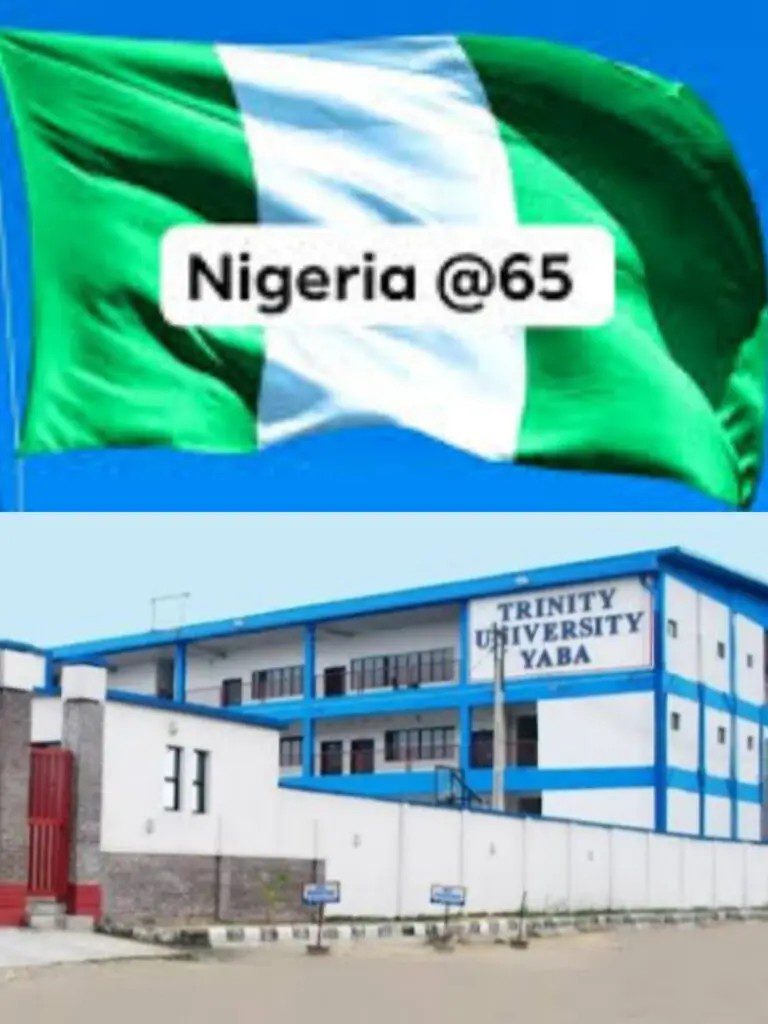The Vice Chancellor, Trinity University (TU), Prof. Clement Kolawole has urged renewed commitment to education as foundation for economic, political, technological, and agricultural development, ahead of Nigeria’s 65th Independence anniversary on Wednesday, Oct. 1.
The vice chancellor in an interview reiterated that Nigeria’s education sector remained very vital to its growth.
The vice chancellor, who commended the Nigerian government for investments in the education sector, stressed that there is still room for improvement.
He noted that education had significantly improved the quality of life of Nigerians, raising literacy levels and shaping governance, lifestyle, and interactions compared to the pre-independence era of 1960.
According to him, the exponential increase in educational institutions from primary to tertiary levels has created employment opportunities and improved the standard of living for many Nigerians.
He, however, identified poor funding and lack of adequate infrastructure as the root causes of social vices, stressing that weak manpower recruitment has worsened the situation.
“The sector has persistent challenges, including banditry attacks, cultism, examination malpractice, indecent dressing, corruption, drug abuse, internet fraud, and declining moral values among youths.
“Inadequate remuneration has further discouraged educators, leaving many demoralised and unable to give their best to students.
“At the same time, unchecked social pressures and the absence of sanctions against misconduct have entrenched misbehaviour in the system.
“When teachers are poorly motivated, the temptation to compromise standards becomes high. Without proper sanctions for misconduct, both staff and students feel they can get away with anything.
“Adequate sanction must become integral to Nigeria’s education system as a form of discipline, if the country truly wants to curb rising social vices in learning institutions,” he declared.
The Don suggested that Nigeria required more universities to cater for its large and growing youthful population seeking higher education, warning that universities must not be established as political patronage.
He noted that while progress had been made, more effort is required to improve the system, stressing that with proper funding, infrastructure, and manpower, universities could truly fulfill their objectives.
“Statistics, show that only 35 per cent of applicants gain admission yearly, while 65 per cent are left stranded, compounding the pressure on the tertiary system. Fresh institutions are still inevitable to meet Nigeria’s future educational demands.
He, however, urged government to critically assess the situation and design guidelines for establishing universities that would meet global standards, rather than lowering quality.
On admission policies, Kolawole opposed the restriction of entry age, warning that it discriminated against brilliant, precocious Nigerians who could otherwise excel and contribute to national progress.
According to him, global universities admit gifted students U-18, who later became exceptional scholars and innovators in their fields.
Commenting on Post-UTME, Kolawole said the exercise has sanitised admissions, revealing the weakness of relying solely on JAMB scores, which sometimes failed to predict academic performance.
He commended the JAMB Registrar, Prof Ishaq Oloyede, for curbing past malpractices, noting that score-alteration syndicates had previously undermined the integrity of admissions.
The Don reiterated that poor funding remained the sector’s biggest setback, causing inadequate infrastructure, unqualified manpower, and repeated strike actions by university unions like ASUU.
He listed shortages in classrooms, libraries, laboratories, hostels, sporting facilities, books, internet services, and technology as major deficiencies dragging Nigeria’s educational advancement.
He appealed to government at all levels to raise allocations to education, stressing that no nation develops beyond the strength of its investment in learning.

